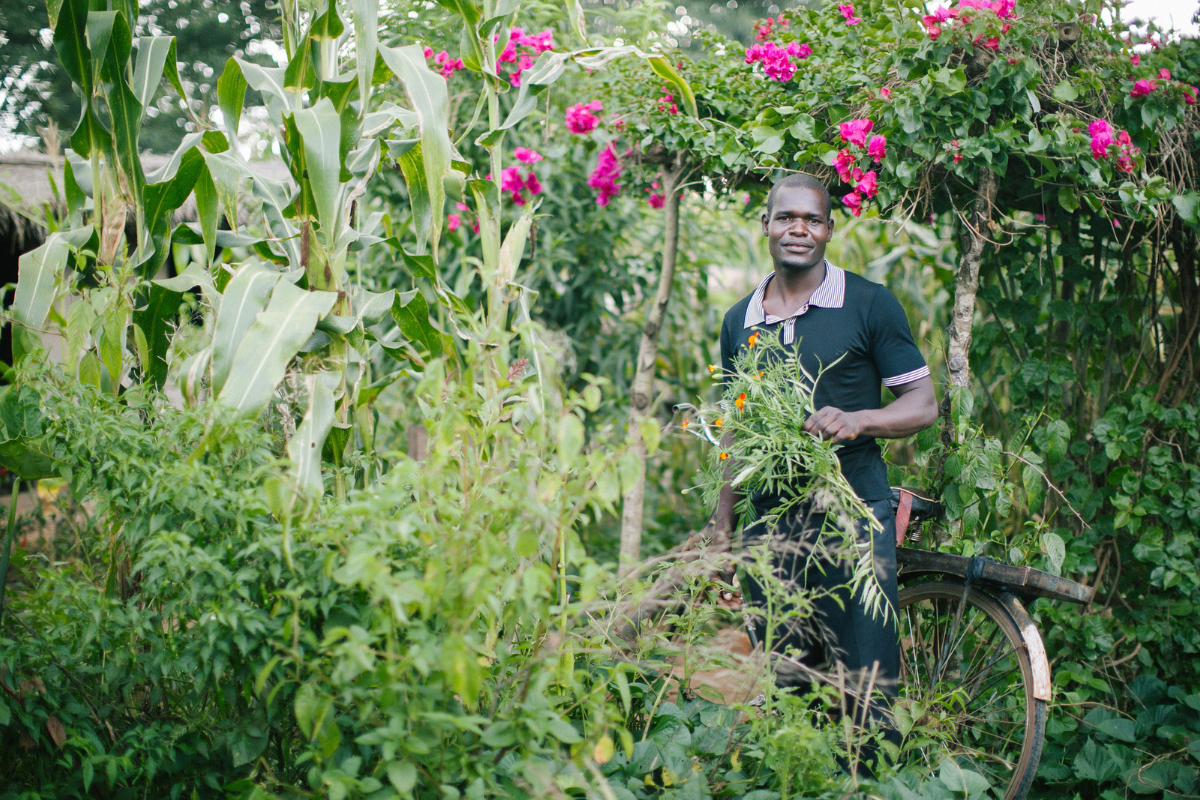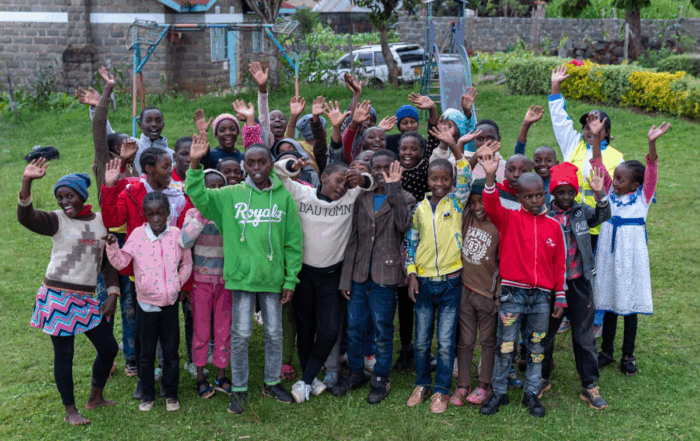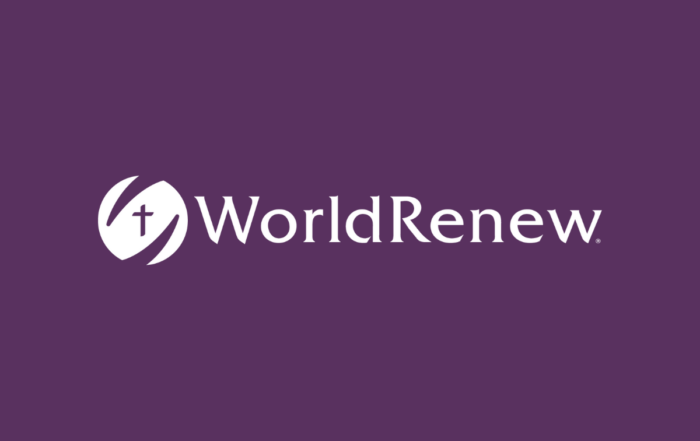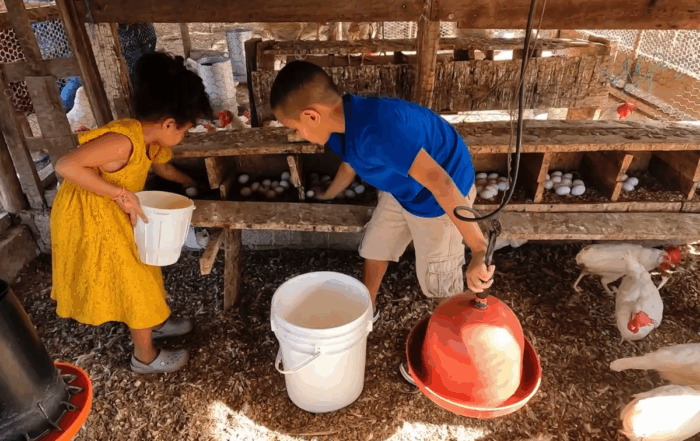WHY JUSTICE MATTERS
WHY JUSTICE MATTERS
July 3, 2024

Justice is an important concept throughout all of Scripture. As Christ-followers, we believe the pursuit of justice is a key aspect of our faith walk. As members of the Christian Reformed Church, we embrace this as one part of our five-fold calling by saying, “Hearing the cries of the oppressed, forsaken and disadvantaged, we seek to act justly and love mercy as we walk humbly with our God.” But why does justice matter? And what does it look like when we pursue this calling in our lives? Recently, several justice seekers from various CRC agencies and ministries sat down to discuss this for an article in The Banner. Here’s more of that interview.
Naomi Bula (Marketing & Communications, World Renew):
We’ve been asked to talk about why justice matters.
Andrew Oppong (Content Manager, Social Justice, Thrive):
If we look at Micah 6:8, the part where it says: “What does the Lord require of you? To act justly, to love mercy, and to walk humbly with God.” What is happening in the previous verses is that Israel is wondering, “With what shall I come before the Lord . . . Shall I come before him with burnt offerings? . . . with ten thousand rivers of olive oil?” (Micah 6:6-7a) That’s good, but that’s incomplete. In the work that we are doing at Thrive, we are trying to remind people of that basic connection between biblical justice and discipleship, how you live your life, how you do worship, how you do faith formation, how you do everything. It’s not a separate thing. They are all inextricably linked.
Cindy Stover (Justice Mobilization Program Manager, CRCNA):
If we have this original creational order within our Reformed theology of understanding the way God intended the world to be: a place where there was justice, where there was shalom, where there was flourishing for all people and all of creation, then really, that means relationships. Nicholas Wolterstorff talks about how the relational nature of righteousness and justice means to be in right relationship with one another and with all of creation. So to do God’s justice in the world is an inherently social act.
Adrian Jacobs (Senior Leader for Indigenous Justice and Reconciliation, CRCNA):
I‘ve been asked what the difference between Indigenous spirituality and Christianity is, and what I’ve always come up with is that an Indigenous spirituality and understanding of the spiritual world is embodied. Indigenous spirituality encompasses: What is my relationship to the land? What is my relationship to other people? To me, Christianity and justice sometimes are not seen as that way because I think of the long history of residential schools that occurred in this country with leaders of the church, including the highest trained leaders, priests and nuns, doing things to Indigenous children that are just so totally opposite to their propositional beliefs. We are what we do. So if you are a Christian who is justice oriented, well, that’s what you do.
Jodi Koeman (Church With Community Coordinator, World Renew):
Showing compassion and mercy is a good start, but it stops short. God’s restorative character, and churches’ social justice, reaches beyond individuals to families, neighbourhoods, countries and societies. It’s for Christians, and for all people. It’s about transforming hearts as well as communities and systems.
Rachel Vroege (Western Ministry Developer, Diaconal Ministries Canada):
In the Deacons’ Mandate is the calling to benevolence and justice ministry and it points the way as to how they’re intertwined. It says: “Deacons offer holistic responses that respect the dignity of all people, working to change exploitative structures and systems, equipping the church for ministries of reconciliation and peacemaking, and seeking opportunities for advocacy.” We’re well beyond, “Why does it matter?” It matters to God, so then it matters to us, the people of God, and we have a mandate to live that out. And then very practically, how does a deacon team offer holistic responses? Once you’re down that road and you’re working with people and building relationships with them, then you will see the way injustice is at work in our society, whether that’s a senior living on a fixed income, people with disabilities, or struggling with chronic illnesses. How is the housing crisis affecting the refugee family the church has sponsored? Churches are directly involved with justice, but maybe it’s just seeing it and then not being overwhelmed and seeing how to respond and work together.
AJ:
In 2006, we had the big conflict at Caledonia, so a bunch of pastors from Six Nations, Caledonia, Hagersville, and so on got together at Caledonia Baptist Church, right next to the land claim conflict.
We eventually prayed for resolution for three years. We met every Tuesday. We’d eat breakfast together, talk about the issue, and then close in prayer. The people there, as Christians, wanted to seek justice. So for me, those three years of three hours a week meeting together as pastors, that’s the embodiment of justice.
Chris Orme (Church Relations Representative, World Renew):
My starting point in answering “why justice matters” is usually going back to Luke 4 when Jesus goes into the synagogue of Nazareth, opens up the scroll of the prophet Isaiah and says: “The Spirit of the Lord is upon me because he’s anointing me to proclaim good news to the poor, proclaim liberty to the captives, recovery of sight to the blind, liberty to the oppressed and proclaim the year of the Lord’s favour.” And so justice matters because it’s the blueprint of Jesus’ ministry. It’s the key to understanding what we’re being invited into. And then, when it comes to conversations of where we focus our justice and where we can engage, having the conversation side-by-side in the local, contextual expression as a church in a particular town with particular needs and marrying that to a wider global conversation. So if I’m part of a church in an urban food desert and we’re all about advocating for access to food locally, I’m going to talk about it globally too. Justice matters because it’s the heart of God.
World Renew is working with one congregation in Malawi building food security through garden irrigation. The pastor told us, “The church works better when people have enough to eat. It gives them more capacity to care for each other well, and to love each other well, and to look beyond the congregation too and see who else needs support.” Justice matters because it’s the heart of God. There’s no shortage of ways for how and what we can be involved in, but it’s better when more people are working together in community.
AO:
I always encourage people that we all have a role to play in the great tapestry of God’s faithfulness. What that means to me is that there is this beautiful lesson from Indigenous peoples that you need to dig where you stand. Wherever you are, there’s something to contribute. There’s an asset. We always have to be invitational and know that we all have something to give. We all have different roles to play in justice work.
AJ:
Embodying your Christian faith in that manner of hospitality, that’s where that’s where the invitational life is: it’s in you. Jesus said, “They’ll know you are of me by the love you have for one another.” (John 13:35) So it’s contagious. I think that that’s what’s important about some of the things that are being shared, is that not only is there tragedy talked about, there’s this resilience and there’s something that is powerful about getting to know people and becoming engaged with them and working through the tough stuff. In this kind of technological world, people are getting lonelier and lonelier and lonelier as we go. I think this answer has always been the embodiment of our Christian faith. We’re more and more of the answer if that’s what our life is all about.
RV:
DMC works with a financial life coach part of our team, so a deacon team here in British Columbia had her come out and coach them in particular benevolent situations. She worked with the people the church was supporting directly and, now, those people may no longer need the financial support of the church. When a church engages sincerely and accesses the right resources, people can be empowered and lifted up to now be able to have more agency in their own situation. Justice matters to all of us and you don’t want to be paralyzed by the fear of doing the wrong thing. But there were a lot of barriers in all of these situations too that the church was learning about as they went along, barriers that you wouldn’t know about at first. You would think, oh, this person just needs financial help, so we’re going to give them money. But once you start digging, there are all kinds of barriers that can be addressed.
JK:
I just started working with four congregations on shifting their food ministries from “food charity” to a “food justice” focus. Not that they’re going to do a lot differently, but they’re going to work through a process of understanding that and shifting and focusing on that. Not that we’re going to do less charity, but we have to add more justice.
CO:
Our starting question this season on the Do Justice podcast was, “What are some things you wish you knew before you started down the path here?” And everyone has a story. That humility piece should be the major accompanying companion down any path. Being open to being corrected: that’s one of the key learnings that comes with any justice journey.
NB:
That “walking humbly” bit.
AO:
I think in justice work, presence matters. Sometimes you wouldn’t know exactly what to do, but just having the humility to be present with somebody and let that person tell you what the felt need is. That can be a justice moment. That offering presence, we sometimes underestimate how powerful that can be.
NB:
If justice matters this much, how do we know we’re doing it well?
AJ:
It’s kind of like asking: How is your dancing going? Because it’s not just a performance, it’s all of life. It’s a celebration. It’s ongoing.
Justice is an important concept throughout all of Scripture. As Christ-followers, we believe the pursuit of justice is a key aspect of our faith walk. As members of the Christian Reformed Church, we embrace this as one part of our five-fold calling by saying, “Hearing the cries of the oppressed, forsaken and disadvantaged, we seek to act justly and love mercy as we walk humbly with our God.” But why does justice matter? And what does it look like when we pursue this calling in our lives? Recently, several justice seekers from various CRC agencies and ministries sat down to discuss this for an article in The Banner. Here’s more of that interview.
Naomi Bula (Marketing & Communications, World Renew):
We’ve been asked to talk about why justice matters.
Andrew Oppong (Content Manager, Social Justice, Thrive):
If we look at Micah 6:8, the part where it says: “What does the Lord require of you? To act justly, to love mercy, and to walk humbly with God.” What is happening in the previous verses is that Israel is wondering, “With what shall I come before the Lord . . . Shall I come before him with burnt offerings? . . . with ten thousand rivers of olive oil?” (Micah 6:6-7a) That’s good, but that’s incomplete. In the work that we are doing at Thrive, we are trying to remind people of that basic connection between biblical justice and discipleship, how you live your life, how you do worship, how you do faith formation, how you do everything. It’s not a separate thing. They are all inextricably linked.
Cindy Stover (Justice Mobilization Program Manager, CRCNA):
If we have this original creational order within our Reformed theology of understanding the way God intended the world to be: a place where there was justice, where there was shalom, where there was flourishing for all people and all of creation, then really, that means relationships. Nicholas Wolterstorff talks about how the relational nature of righteousness and justice means to be in right relationship with one another and with all of creation. So to do God’s justice in the world is an inherently social act.
Adrian Jacobs (Senior Leader for Indigenous Justice and Reconciliation, CRCNA):
I’ve been asked what the difference between Indigenous spirituality and Christianity is, and what I’ve always come up with is that an Indigenous spirituality and understanding of the spiritual world is embodied. Indigenous spirituality encompasses: What is my relationship to the land? What is my relationship to other people? To me, Christianity and justice sometimes are not seen as that way because I think of the long history of residential schools that occurred in this country with leaders of the church, including the highest trained leaders, priests and nuns, doing things to Indigenous children that are just so totally opposite to their propositional beliefs. We are what we do. So if you are a Christian who is justice oriented, well, that’s what you do.
Jodi Koeman (Church With Community Coordinator, World Renew):
Showing compassion and mercy is a good start, but it stops short. God’s restorative character, and churches’ social justice, reaches beyond individuals to families, neighbourhoods, countries and societies. It’s for Christians, and for all people. It’s about transforming hearts as well as communities and systems.
Rachel Vroege (Western Ministry Developer, Diaconal Ministries Canada):
In the Deacons’ Mandate is the calling to benevolence and justice ministry and it points the way as to how they’re intertwined. It says: “Deacons offer holistic responses that respect the dignity of all people, working to change exploitative structures and systems, equipping the church for ministries of reconciliation and peacemaking, and seeking opportunities for advocacy.” We’re well beyond, “Why does it matter?” It matters to God, so then it matters to us, the people of God, and we have a mandate to live that out. And then very practically, how does a deacon team offer holistic responses? Once you’re down that road and you’re working with people and building relationships with them, then you will see the way injustice is at work in our society, whether that’s a senior living on a fixed income, people with disabilities, or struggling with chronic illnesses. How is the housing crisis affecting the refugee family the church has sponsored? Churches are directly involved with justice, but maybe it’s just seeing it and then not being overwhelmed and seeing how to respond and work together.
AJ:
In 2006, we had the big conflict at Caledonia, so a bunch of pastors from Six Nations, Caledonia, Hagersville, and so on got together at Caledonia Baptist Church, right next to the land claim conflict.
We eventually prayed for resolution for three years. We met every Tuesday. We’d eat breakfast together, talk about the issue, and then close in prayer. The people there, as Christians, wanted to seek justice. So for me, those three years of three hours a week meeting together as pastors, that’s the embodiment of justice.
Chris Orme (Church Relations Representative, World Renew):
My starting point in answering “why justice matters” is usually going back to Luke 4 when Jesus goes into the synagogue of Nazareth, opens up the scroll of the prophet Isaiah and says: “The Spirit of the Lord is upon me because he’s anointing me to proclaim good news to the poor, proclaim liberty to the captives, recovery of sight to the blind, liberty to the oppressed and proclaim the year of the Lord’s favour.” And so justice matters because it’s the blueprint of Jesus’ ministry. It’s the key to understanding what we’re being invited into. And then, when it comes to conversations of where we focus our justice and where we can engage, having the conversation side-by-side in the local, contextual expression as a church in a particular town with particular needs and marrying that to a wider global conversation. So if I’m part of a church in an urban food desert and we’re all about advocating for access to food locally, I’m going to talk about it globally too. Justice matters because it’s the heart of God.
World Renew is working with one congregation in Malawi building food security through garden irrigation. The pastor told us, “The church works better when people have enough to eat. It gives them more capacity to care for each other well, and to love each other well, and to look beyond the congregation too and see who else needs support.” Justice matters because it’s the heart of God. There’s no shortage of ways for how and what we can be involved in, but it’s better when more people are working together in community.
AO:
I always encourage people that we all have a role to play in the great tapestry of God’s faithfulness. What that means to me is that there is this beautiful lesson from Indigenous peoples that you need to dig where you stand. Wherever you are, there’s something to contribute. There’s an asset. We always have to be invitational and know that we all have something to give. We all have different roles to play in justice work.
AJ:
Embodying your Christian faith in that manner of hospitality, that’s where that’s where the invitational life is: it’s in you. Jesus said, “They’ll know you are of me by the love you have for one another.” (John 13:35) So it’s contagious. I think that that’s what’s important about some of the things that are being shared, is that not only is there tragedy talked about, there’s this resilience and there’s something that is powerful about getting to know people and becoming engaged with them and working through the tough stuff. In this kind of technological world, people are getting lonelier and lonelier and lonelier as we go. I think this answer has always been the embodiment of our Christian faith. We’re more and more of the answer if that’s what our life is all about.
RV:
DMC works with a financial life coach part of our team, so a deacon team here in British Columbia had her come out and coach them in particular benevolent situations. She worked with the people the church was supporting directly and, now, those people may no longer need the financial support of the church. When a church engages sincerely and accesses the right resources, people can be empowered and lifted up to now be able to have more agency in their own situation. Justice matters to all of us and you don’t want to be paralyzed by the fear of doing the wrong thing. But there were a lot of barriers in all of these situations too that the church was learning about as they went along, barriers that you wouldn’t know about at first. You would think, oh, this person just needs financial help, so we’re going to give them money. But once you start digging, there are all kinds of barriers that can be addressed.
JK:
I just started working with four congregations on shifting their food ministries from “food charity” to a “food justice” focus. Not that they’re going to do a lot differently, but they’re going to work through a process of understanding that and shifting and focusing on that. Not that we’re going to do less charity, but we have to add more justice.
CO:
Our starting question this season on the Do Justice podcast was, “What are some things you wish you knew before you started down the path here?” And everyone has a story. That humility piece should be the major accompanying companion down any path. Being open to being corrected: that’s one of the key learnings that comes with any justice journey.
NB:
That “walking humbly” bit.
AO:
I think in justice work, presence matters. Sometimes you wouldn’t know exactly what to do, but just having the humility to be present with somebody and let that person tell you what the felt need is. That can be a justice moment. That offering presence, we sometimes underestimate how powerful that can be.
NB:
If justice matters this much, how do we know we’re doing it well?
AJ:
It’s kind of like asking: How is your dancing going? Because it’s not just a performance, it’s all of life. It’s a celebration. It’s ongoing.






